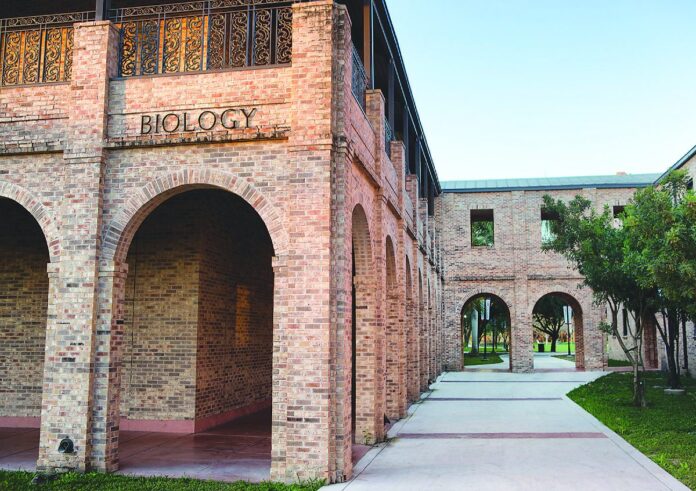On the heels of recently attaining Tier 2 status from the Carnegie Classification of Institutions of Higher Education, the University of Texas Rio Grande Valley’s is furthering its research ambitions by adding two new science-related degree programs.
This fall UTRGV will add two new master’s degree programs — biochemistry and molecular biology — to its course offerings. The Texas Higher Education Coordinating Board approved of the new degrees this month.
The program is hoping for about 25-50 students to enroll, said Parwinder Grewal, executive vice president for research at UTRGV. Grewal said offering this program is a step toward becoming an “emerging research university.” If achieved, the institution would be able to obtain additional state and federal funds. The process of getting this program accredited and approved took about two years, he said.
“Moving forward, we are trying to expand our research capacity and to receive more research-oriented grants … this program will continue towards that goal,” Grewal said.
UTRGV’s recent classification as Tier 2 is the highest level the university has achieved with “high research activity.”
This designation is based on the university’s record and accomplishments, Grewal said.
The university awarded at least 20 research or scholarship doctoral degrees last year and at least $5 million in “total research expenditures as reported through the National Science Foundation (NSF) Higher Education Research and Development Survey (HERD),” to achieve this Tier 2 level, according to a news release.
This graduate degree is “interdisciplinary” in preparing students for the biotechnology field which incorporates biomedical and health and environmental sciences among other studies, Grewal said. Going into the biotechnology industry or entering doctoral programs are some of the outcomes students graduating with this degree, he said.
There is an expectation that these students going into the program have some background in biology, chemistry or health sciences, he said.
The College of Science faculty will help lead the program but professionals from the School of Nursing and the College of Health Professions may also contribute to mentoring students, Grewal said.
These graduate students will also “serve as a pipeline” for future programs planned that still need to go through a process of accreditation, Grewal said.
“The new program is highly versatile, leading to opportunities in a broad range of areas,” said Mohammed Farooqui, interim dean of the College of Sciences, in a news release.
With a research-oriented program, this aligns with the university’s goal of becoming a “powerhouse,” and achieving a Tier 1 classification, Grewal added.





